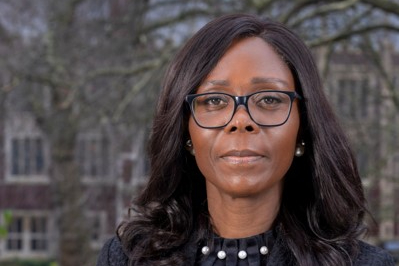
What was your route into the profession?
I was very lucky in that I had a really straightforward route into the profession—from school to university and from there to Bar school. And while I was at Bar school, I found pupillage at 4PB, where I am still in practice and now its joint head of chambers.
What has been your biggest career challenge so far?
It was in the early days of starting to build my mediation practice. This was at a time when non-court dispute resolution (NCDR) wasn’t well understood. At the time, my senior clerk couldn’t understand it at all. He was of the school of thought that barristers should be getting disputes into court, not keeping them out of it. He really thought I’d lost my mind.
So, I had to start slow and build my practice from scratch and really demonstrate how my experience as a seasoned litigator did not stand in the way of facilitating constructive dialogue that would lead to successful resolution of the issues. Now I receive referrals from High Court judges and senior professional colleagues for cases that are high-conflict and sometimes international. I’m really pleased that mediation, and all forms of NCDR, form essential parts of the eco-system for resolving family disputes.
If you weren’t a lawyer, what would you choose as an alternate career?
I used to say I’d run a coffee shop because I love baking, and years ago I spoke about owning a particular coffee shop we used to go to on Anglesey. I have come to realise that it isn’t cakes and tea I wanted to provide, but rather a hub—a place for people to gather, chat, support and look out for each other. What I wanted to do is to build and create a community.
Who is your favourite fictional lawyer?
I loved Perry Mason—you could always rely on him to not only show that his client was innocent of the crime, but also he found the real criminal. The simplicity of it all!
She’s not a fictional character, but Judge Judy’s one-liners really make me laugh.
What change would you make to the profession?
What I would like to see in the profession is wellbeing losing its stigma as a sign of weakness and elevated to the same non-negotiable level as having an accountant or having insurance. This year we’re working on a developing a way of looking after yourself that is tax-deductible and just becomes a common part of what we do as practitioners. That would be huge for the profession.
Linked to wellbeing is inclusion. Going on circuit visits and meeting different groups of barristers over the last year or so, it really strikes me how much people don’t feel included. How much they feel that the action is happening somewhere else, not where they are. And that leads to a feeling of not being valued. I want to use my year as Chair to bring a greater sense of inclusion and bring the Bar together and really demonstrate that the Bar Council is listening.
Which person within the legal profession inspires you most?
There are people in our profession who come from challenging circumstances and use their experiences to help others. People like Gemma Creamer and Lucy Barnes who set up Lawyers Who Care, and Mass Ndow-Njie who founded Bridging the Bar.
The challenges they faced have been used as the fuel to fire change for others coming into the profession. I really admire people like that.
How do you relax?
Walking and being outside. I’m also learning formal dance. I have one-to-one lessons with my teacher, Zoltan, and I love it.
Barbara Mills KC is Chair of the Bar 2025. She is joint head of chambers at 4PB and practises in family law specialising in difficult and complex children cases. Newlawjournal.co.uk










